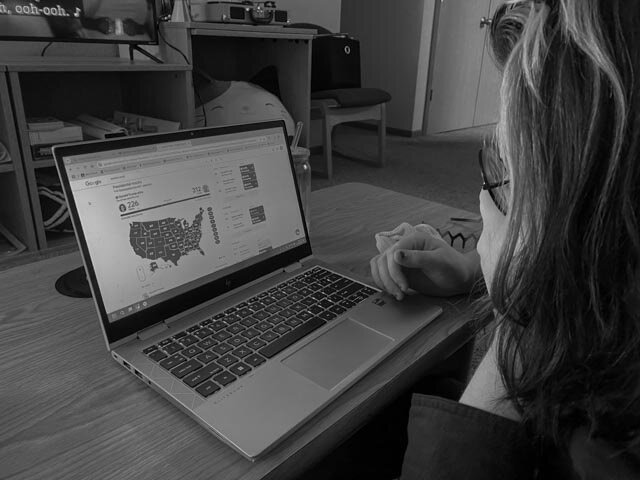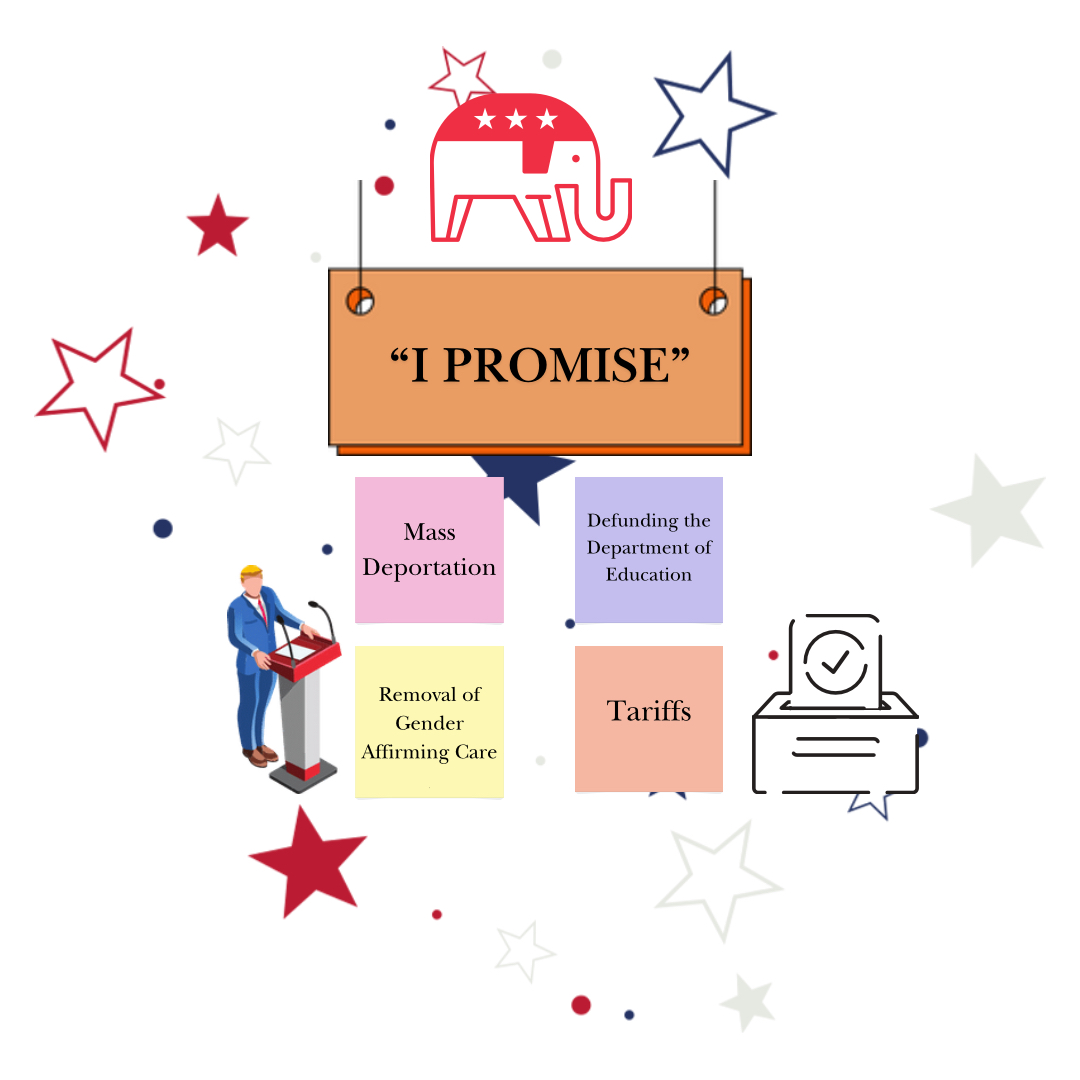Victoria McKenzie/ Winonan
Emerging from the library, a college student with disheveled hair and second-day sweats carries a heap of books and notes that threaten to fall and scatter hours worth of work. Between tests, projects and papers in the calm before the storm of finals, some students can easily forget the issues of the outside world.
Yet, some students set aside their work and let their voices be heard in the elections on Nov. 4.
Still, some facutly and students believe not enough students are participating in elections.
Kelly Herold, a communications professor at Winona State University, said he believes the lack of college student turnout on Election Day is partially due to a lack of motivation caused by students’ sense that things are the way they are and change is not possible.
“Maybe part of the problem is our government is broken,” Herold said. “I grew up where democrats and republicans got along and could go out for a beer together.”
He said he believes in recent years the democratic process has seemed broken, causing many people, especially college students, to feel like their voices are not being heard.
Herold said he believes the two main issues currently hindering the democratic process and the United States’ ability to create positive change are large companies funneling money into campaigns and a lack of bipartisanship.
Students do have the power to change this standard, Herold said.
“I think students don’t recognize the power that they have,” Herold said.
John Otis, a junior organizational communication major and resident assistant in Kirkland Hall said students who vote should be educating their peers about voting.
Otis said, “There are college students who know how to vote, know the importance of voting and are comfortable voting. Those are the students who vote.”
He continued and said, “We just need to keep encouraging our fellow students and continue to educate on how exactly to vote.”
Otis said he has often heard people complain about voting being complicated and that there is a lot of pressure associated with it.
For these students, Otis said voting could be intimidating.
Otis also said he believes, “some college students don’t vote because they feel that they are not represented well.”
Herold said he believes college students must be self-motivated to find out more about the candidates, and the candidates should be doing more to inform college students.
“It might be on the candidates a little bit too to tell [college students] through social blogging and social networking,” Herold said.
Winona State residence halls encouraged student engagement in the voting process, Otis said.
“Before election day, there were students going around the halls to students’ rooms asking if they wanted to register to vote and actually registering them right then and there,” Otis said.
Registration areas were available on campus to residents, Otis said.
Herold said he believes due to the support from the school that made voting simple for students, the claim that voting is inconvenient is just another excuse.
He said he is disappointed with the low college turnout for elections, when it is made easily accessible to them, especially considering the fact that others around the world travel miles on foot and risk their lives to vote and voices to have their voices heard.
“We’re fortunate to have the right to vote and voice our opinions, and it’s a right that a lot of other countries just don’t have,” Otis said. “It’s important to actually vote for what you believe in.”
Herold said he believes it is not just Election Day that students need to get involved.
“Don’t give up. Do get involved. Run for office; run for student senate; run for your church board,” Herold said. “There is some hope when the small little David can take on the Goliath and [David’s] message really resonates with the audience.”









































